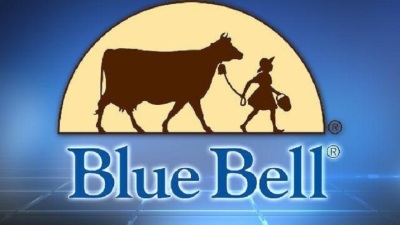Christian-owned Blue Bell issues total recall of ice cream products

BRENHAM, Texas (Christian Examiner) – Going forward, Blue Bell Creameries plans to "test and hold" all products before distribution.
That is just one of several steps taken as a result of a listeria outbreak traced to the best-selling ice cream, which resulted in a total recall April 20 of all Blue Bell products. It is the first-ever recall in the privately held company's 108-year history, which was built and thrives on a Christian foundation.
"The big thing about the leadership here, they really rely on their heavenly father," Jenny VanDorf, a company spokesman, told Christian Examiner. "We're thankful for the prayers we're receiving.
"Here we are in this small Texas town," VanDorf continued. "Faith is part of our community. We're going to get through this."
Products should be back on store shelves across the South within about two weeks, she added.
Blue Bell's President and CEO Paul Kruse is the grandson of E.F. Kruse, who grew a local creamery into an internationally-recognized brand.
"We are heartbroken about this situation and apologize to all of our loyal Blue Bell fans and customers," Paul Kruse said. "We're committed to doing the 100 percent right thing, and the best way to do that is to take all of our products off the market until we are confident that they are all safe."
There is no way of knowing the financial hit the company is making by its total recall, but its customers are more important than financial considerations, VanDorf told Christian Examiner.
Blue Bell "brought in one of the world's most respected food safety microbiologists to inspect our plans and systems to help us get to the bottom of this issue," Kruse said in a press release. "At this point, we cannot say with certainty how Listeria was introduced to our facilities."
According to the company, as a result of the outbreak, more stringent food safety procedures have been implemented at its manufacturing plants in Broken Arrow, Oklahoma, Brenham, Texas, and Sylacauga, Alabama.
Among them are expanding an "already robust system" of daily cleaning and sanitizing of equipment; more testing of more surfaces inside the plants; sending samples daily to an outside laboratory for testing; and providing additional employee training.
Listeria is a pathogen present in soil and water that "has the potential to be present in all raw foods," according to FoodSafetyWatch.org. The first outbreak that could definitely be traced to food was in commercially-prepared coleslaw in Canada in 1981. Manure from listeria-infected sheep had been used as a fertilizer when growing the cabbages used to prepare the coleslaw.
Blue Bell, which uses milk from more than 60,000 cows each day in its production of ice cream, says its product is so fresh "it was grass yesterday." The cows are owned by farmers within about a 200-mile radius of each of its plants, Van Dorf told Christian Examiner.
"Although pasteurization is sufficient to kill listeria, failure to reach the desired temperature in large packages can allow the organism to survive," the Food Safety Watch website reports.
Ten people total in four states have fallen ill from the bacteria believed to have come from Blue Bell products, the CDC said Tuesday. One person became sick in Arizona, five in Kansas, one in Oklahoma and three in Texas.
Four of the Kansas patients, admitted for other reasons, became sick after drinking hospital milkshakes made with a Blue Bell product called "Scoops," which comes in large containers. Three of those patients died.
There are at least two different strains of the bacteria that infected these patients, according to the CDC, and one of the organisms is related to an outbreak in 2010, showing the resilience of the life form.
Food also can be contaminated after processing by the introduction of unpasteurized material. In Blue Bell's case, chocolate chips, cookie dough, and other items from outside sources combined in the creameries' bakeries are added to the pasteurized ice cream. Listeria can also be spread by contact with contaminated hands, equipment and counter tops, which Blue Bell addressed by increasing – by 800 percent – the number of surfaces to be given a daily disinfectant cleansing, and the number of times these contact areas are to be cleaned.
"Our entire history has been about making the very best and highest quality ice cream, and we intend to fix this problem," Kruse said. "We want enjoying our ice cream to be a source of joy and pleasure, never a cause for concern, so we are committed to getting this right."
Blue Bell products – 250 different items, including 66 flavors of ice cream – are sold in 23 states spreading out from across the southeastern United States as far west as Las Vegas, Nevada, and as far north as Denver, Colorado. Despite its limited sales area, Blue Bell is the third highest-selling ice cream brand in the nation.